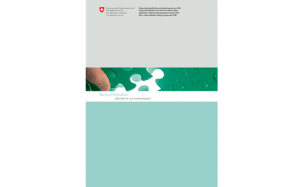After Fukushima, ENSI reviewed its own oversight culture and derived appropriate measures
Analyses of the events in Fukushima revealed that the operator was not solely responsible for the failures in the run-up to the earthquake and tsunami, but rather that the supervisory authorities were also partly responsible. The Swiss Federal Nuclear Safety Inspectorate (ENSI) therefore took this opportunity to review its own oversight culture.
 With the foundations of oversight that they set out, and through their practical oversight work, supervisory authorities play a significant role in influencing the safety and the safety culture of the organisations they oversee. Within the framework of its analysis of the accident at Fukushima, the ENSI also formulated a checkpoint relating to oversight culture. As a consequence of this, the supervisory authority began a three-year project whose aim was to initialise a process of self-reflection regarding its own oversight culture and to derive concrete measures from this.
With the foundations of oversight that they set out, and through their practical oversight work, supervisory authorities play a significant role in influencing the safety and the safety culture of the organisations they oversee. Within the framework of its analysis of the accident at Fukushima, the ENSI also formulated a checkpoint relating to oversight culture. As a consequence of this, the supervisory authority began a three-year project whose aim was to initialise a process of self-reflection regarding its own oversight culture and to derive concrete measures from this.
Definition of the oversight culture
In reliance on the definition formulated by ENSI in its report on supervision of the safety culture in nuclear installations, the term “oversight culture” is defined as follows:
Oversight culture comprises values, world views, verbal and non-verbal behaviours as well as specific products and work bases (e.g. the regulatory framework, demands, and formal orders) which are shared by the members of the supervisory authority. Oversight culture includes those values, world views, behaviours, products and work bases that determine or demonstrate how the members of the authority approach and deal with nuclear safety in their oversight work.
All ENSI staff were closely involved in the review of the oversight culture and in developing the measures. The project ultimately yielded 15 measures, some of which have already been implemented; the remainder are set to be implemented in the coming years. These measures relate to issues including the following:
- Basic and continuing training of ENSI employees
- Training course on feedback techniques
- Decision-making culture as regards decisions with possible wide-ranging effect
- Feedback from supervised parties about ENSI’s oversight culture
The Mission Statement has also been revised.

